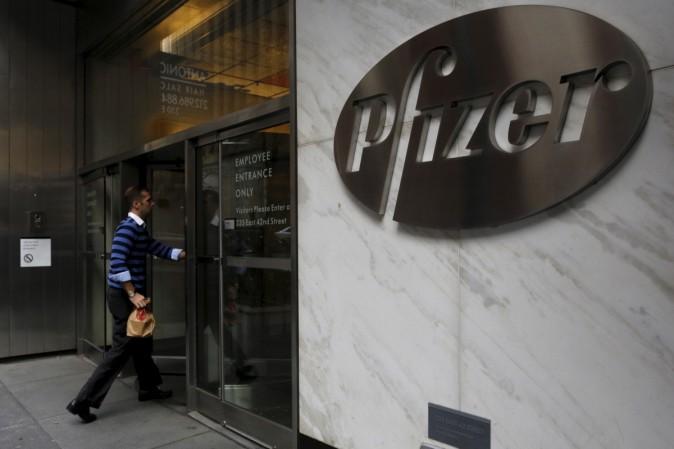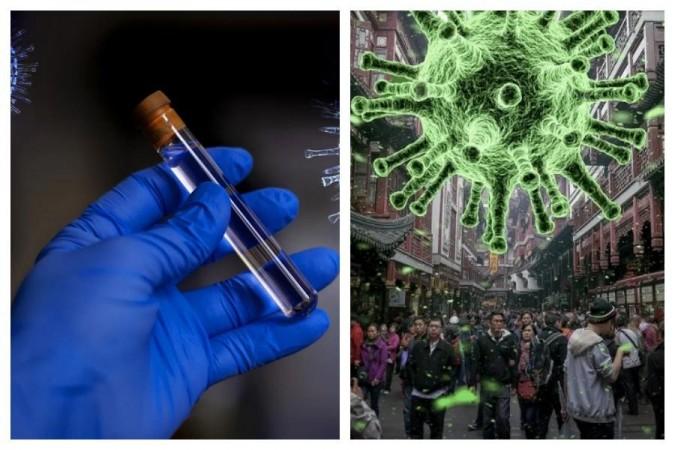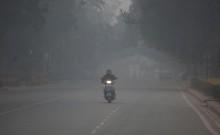A vaccine jointly developed by Pfizer and BioNTech is said to have been almost 90 percent effective in preventing Covid-19 infections, according to the preliminary findings by the companies, but with a catch – the medicines need to be stored at extra cold temperatures.
As per media reports, Pfizer has decided to ship COVID medicine directly from American manufacturing facilities and warehouses to end-users with the help of trusted transportation providers rather than through the U.S. government's designated coordinator, the McKesson Corp., which has been tasked to be the central distributor for COVID vaccines and related supplies by the Centers for Disease Control and Prevention.

The U.S. government entered a contract with the New York-based pharmaceutical company to deliver 100 million initial doses once its vaccine is approved, with an option for an additional 500 million doses. But importantly, Pfizer's product must be maintained at minus 75 degrees Celsius (-109.3 degrees Fahrenheit) to maintain its effectiveness. Such storage and distribution of Covid-19 vaccines is a must for the massive logistics effort that will be needed to reach hundreds of millions of people globally.
To be clear, this is not great news for India. The Pfizer/BionTech vaccine uses messenger RNA tech - and so will have to be stored at -70 degrees Celsius in its supply chain. Almost impossible in India, as of now https://t.co/LkjZO5jEDg
— Mihir Sharma (@mihirssharma) November 9, 2020
Moderna's vaccine used with the same technology has to stored below -20 degrees Celsius but once thawed has to be stored below 7 degrees Celsius with a shelf life of 7 days.
— Suhas Patil (@SuhasPa14357194) November 9, 2020
How cold storage is important for vaccine?
Keeping the above in view, the safe delivery of vaccines for mass immunization against COVID-19 has become a massive challenge for India whereby the world's second most populous nation that is moving into the next stage of management of the disease and looking towards a preventive measure, will need to significantly ramp up its cold chain facilities as soon as possible.
Union Health Minister Harsh Vardhan had told PTI last week that the Centre has also reportedly directed states to make a robust plan for vaccine storage and distribution by October 15.
"Unlike drugs, virtually all vaccines need to be transported at cold temperatures, usually between 2 and 8 degrees Celsius," said Raghavan Varadarajan, professor at the Indian Institute of Science (IISc) in Bengaluru.
The necessity is to keep the vaccine product cold, either refrigerated or frozen. This is a constraint especially with large numbers of doses, Varadarajan told PTI, explaining the particular problems of India that has a population of 1.3 billion, second only to China.

These vaccines use a synthetic version of genetic material from part of the coronavirus. The genetic material called messenger RNA (mRNA) then prompts the cells to make a tiny piece of the virus, which the immune system recognizes as foreign. If the person is later exposed to the real virus, the immune system will attack it.
Noting that RNA vaccines have never been used on humans, Vardarajan said it is possible high temperatures can affect these structures and thus affect the efficacy of the formulation.
Many vaccines lose potency when exposed to higher temperatures, he said, and re-cooling does not help.

















